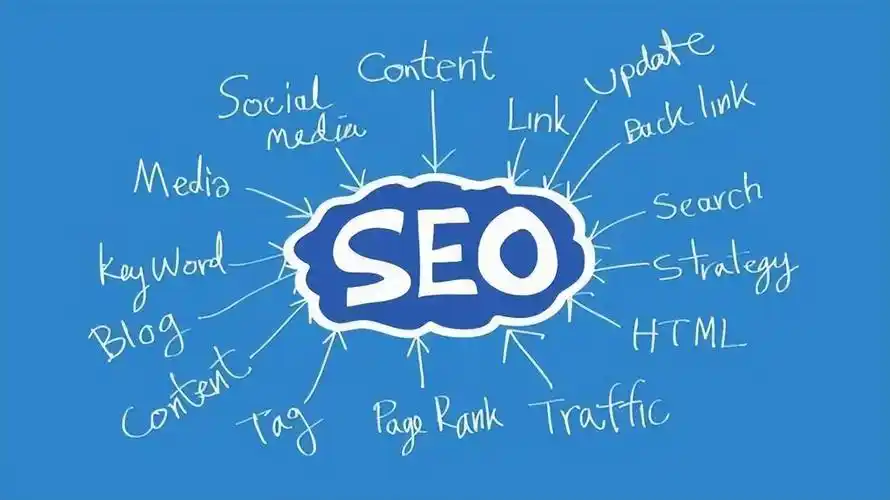There are some existing case studies on the Internet that prove that websites and enterprises can rank on Google without establishing any backlinks. Perhaps, if you look at some old media websites and specific field information websites, you will see that blogs rank highly in thousands of keywords despite not making any efforts on backlinks. However, even without any backlinks, it is possible for you to rank on Google. But I think the argument that there are no backlinks in SEO has not received much discussion.

Therefore, in this article, I want to share whether backlinks are really important for SEO. If not, how to develop a website without backlinks. However, it is possible to rank on Google even without any backlinks. But I think the argument that there are no backlinks in SEO has not been discussed much.
Therefore, in this article, I would like to share whether backlinks are really important for SEO. If they are not, then how to develop a website without backlinks.
Are backlinks really that important for SEO and rankings? Backlinks have long been a major component of rankings, but more and more people are questioning this. In recent years, Google has stated that backlinks are no longer a factor for ranking high, but dozens of studies and observations show that this is not the case. Personally, as an agency, we see clients achieve results every day through link building. However, there are also cases where websites that rank well have no backlinks. As far as we know, the following are the main determining factors:
Competition: Look at what is ranking for your target keywords. If you see a site ranking with a DR of 20/10 on the SERP, then you probably don’t need backlinks to rank. Topic Authority: You can outrank other sites by consuming backlinks by creating content that comprehensively covers your niche. This means that you cover a specific topic more extensively than any other site on Google, helping you outrank them. But — before you give up on link building altogether, consider this:
Challenging niche markets require tough strategies: if you are competing with big fish in a fiercely competitive market, backlinks are essential. They are the lifeline for you to maintain a leading position in search results. So, if you see strong competitors, then you do need a backlink. Another important thing to remember is that Google is becoming increasingly intelligent. They are no longer just calculating links, but looking at the overall situation. User experience, high-quality content, and relevance can drive the development of any website. So, do you need backlinks to get rankings? It depends on the situation. In areas with lower competition, you may not need backlinks to achieve rankings. Otherwise, you must have a backlink.
How to Win at SEO Without Link Building If you have an existing website and want to take the no-link building route, following the advice shared in this article may help you rank on the first page of Google without any backlinks
 How to Win at SEO Without Backlinks
How to Win at SEO Without Backlinks
- Search for niche markets with less competition.
In the SEO field, your niche market can make or break your game. Those large and alluring niche markets you dream of? They might be teeming with experienced players. The real magic happens in sub-niche markets.
How to discover those hidden gem sub-niches? There is no best way to find low-competition niches. However, you can choose to follow the following tips to make your research easier: Dive into social media: Sub-niche ideas on platforms like Reddit, Twitter, and Facebook groups are like gold mines. You can look for communities full of passion and discussing topics related to your core market. Communicate with your ICP: You can have one-on-one calls with your target customers and analyze the types of problems they are discussing. Try to come up with some new topic ideas for your SEO. Use tools like Ahrefs: You can check your competitors' rankings and try to analyze the keywords and subtopics they are publishing.
- Search for keywords that are easier to rank Usually, easily accessible results are the easiest to rank, not to mention they do not require actively establishing links to rank. If you don't know, the easy to come results are those search terms that only have competition, even as a novice website without backlinks, you have a better probability of ranking. Here are the methods to discover these hidden gems:
- Use tools such as Ahrefs: The sub niche (or) sub topics you discover from the above steps can be used as seed keywords to start your keyword research.
- Use keyword filters: In Ahrefs, you can use some filters to find easily found keywords. Our most commonly used filters are: websites with KD<20, DR20 ranking in the top five, and search volume>50.
- Analyze your SERP: After applying filters to obtain a list of keywords, you need to perform SERP analysis on each keyword to check which other websites rank in the top 10. Applying keyword filters and analyzing SERPs in Ahrefs, you can follow my meaningless keyword research method, and after spending a few hours on keywords, you should have an easy to rank keyword list.
- Prioritize keyword clusters to build topic authority
The technique of using topic clusters or keyword groupings is the way to gain topic authority in your field. The goal of using clusters is to cover every question related to your topic to make your website authoritative in that field. However, I recommend that you start by publishing content targeting the easy-to-find keywords mentioned above. Then build a keyword cluster strategy to publish content at scale. There is a tool called chat AI that you can use to enter your keywords and it will tell you what kind of search queries and content you need to cover to build topic authority in your sub-field.

- Optimize your content with top-notch SEO strategies
- Before publishing the carefully-written articles and expecting them to rank without backlinks, there are more matters that you need to pay attention to.
- Before publishing the content, you need to perform appropriate page SEO optimization each time to increase the exposure of search results. Here are the standard page SEO techniques we follow:
- Use tools like Neuronwriter to generate natural language processing (NLP) terms. You need to input these NLP terms naturally into your content to make it friendly to search engines.
- Use appropriate heading structures (H1, H2, and H3 tags)
- Optimize your URLs with keywords.
- Ensure that appropriate terms are included in the image alt text.
- The purpose of page SEO is to make your content conform to Google's language. This optimization helps to easily associate your content with specific keywords.
- Heavy reliance on internal links
If you don't rely on backlinks to obtain link juice, the role of internal links becomes even more important. Through appropriate internal links and a "silo" structure, websites can deliver link juice to pages that are very important to them. This helps Google understand which pages on your website are most important. Here are some simple tips about internal linking:
- Use descriptive anchor text for internal links. Don't use simple anchor text like 'click here', instead use phrases rich in keywords to provide context for the linked page.
- Put the most important pages first. Link to these pages as much as possible.
- Use tools such as Ahrefs or Screaming Frog to find any internal linking opportunities. The problem is that internal links are not only used for SEO. It can also guide visitors to access relevant content, thereby extending their visit time and improving the user experience.